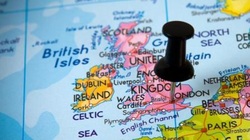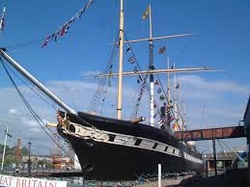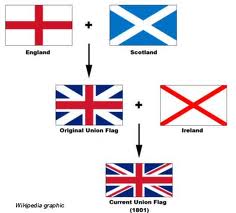 www.bbc.co.uk
www.bbc.co.uk My birthplace, Australia, once thought of as an island, is actually the smallest continent. Of course, that's only temporary because the land mass has broken away from the Antarctic and is slowly travelling towards Indonesia. Experts believe they will form together and join Asia in the future.
The land on our planet is constantly moving and evolving. But that's another topic.
Looking at the facts, Britain is "a fairly large island as far as islands go", according to a professor at the University of Prince Edward Island in Canada.
"At the top end we usually define the very large islands as continents and from a geographical point of view there are only four of those: Eurasia-Africa, America, Antarctica and Australia.
"So if we include those as mega-islands, Britain would actually be the lucky 13 - the 13th largest land mass on the planet."
 SSGreat Britain en.wikipedia.org
SSGreat Britain en.wikipedia.org That puts it way ahead of some other well-known islands, Cuba for example (17th), Sri Lanka (25th), Trinidad (117th) or Long Island (148th). Russia's largest island, Sakhalin, ranks a mere 23rd.
Britain is one of the few islands of significant size that calls itself Great, smaller ones doing so to distinguish themselves between a lesser one of the same name. The Great had to be appended to Britain mainly to distinguish it from Brittany—also known as Britannia minor, or lesser Britain, the French peninsula that had been settled in the fifth and sixth centuries by Celtic immigrants from the British Isles.

The name United Kingdom refers to the union of what were once four separate countries: England, Scotland, Wales and Ireland (though most of Ireland is now independent). Great Britain is the island combining England, Scotland and Wales. You could say that's the evolution of a country.
Everything alters over time. Continents shift. Forests die. Grassland takes over. Animals become extinct. Pioneers settle in new lands and displace the original inhabitants. We need to bend like bamboo before the wind rather than snap in the manner of a stiff branch in our ever-changing world.

 RSS Feed
RSS Feed






